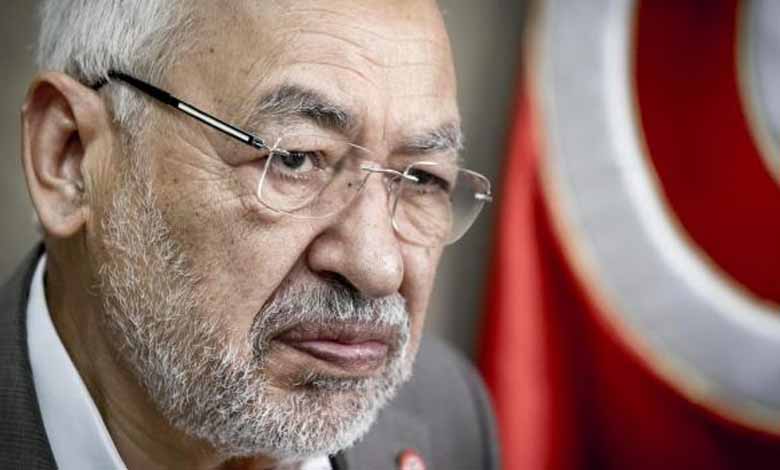Ghannouchi Hints at Chaos, A Message of Despair with the Letters of Return

Days before his trial in the Secret Apparatus of the Muslim Brotherhood in Tunisia, Rached Ghannouchi, the leader of the terrorist group, hurried to appear and threatened the country’s security.
Ghannouchi, who is seeking a lifeline for his Muslim Brotherhood organization, said in a television interview, “We must now move quickly to save Tunisia, as we did in 2011,” in a veiled message to his supporters to sow chaos and chaos in order to return to power.
The 81-year-old leader of the Brotherhood’s Ennahdha Party, who is facing charges of terrorism, murder and financial corruption, added that the parliament, dissolved since July 25, 2021, “retains its legitimacy, and is the only legitimate institution representing the legislative and regulatory authority.”
“Only the Tunisian people have been given legitimacy to the (dissolved) parliament, and they alone can withdraw this legitimacy,” Ghannouchi continued, disregarding the December 17 legislative elections.
Contrary to the Brotherhood’s exclusionary ideology, Ghannouchi argued that “the great danger in Tunisia is exclusion.. Why can’t we find a formula to live with each other, benefit and benefit our children while our differences are richer for this country?”.
He also attempted to incite the security and military forces, claiming that the hard-line forces (police and army) “will not remain silent for long,” in a call for a coup against Tunisian President Kais Saied.
“Brotherhood Cancer”
Ghannouchi’s remarks drew criticism on social media in Tunisia, with some activists calling them “dangerous.” Others said Ghannouchi “does not want to believe that the Brotherhood parliament and its 2014 constitution were discarded on July 25, 2021 and replaced with a new constitution and parliamentary elections.”
Tunisian political activist, Fathi Al-Amadouni, asked in a post on Facebook: “After the serious statement made by the criminal Ghannouchi…Where is the country?”.
“A man directly threatens not to recognize the state and its institutions, considers himself the speaker of parliament and is not removed by anyone,” he said.
“The criminal Ghannouchi does not recognize elections and state institutions. The man is heading towards a scorched earth policy,” he said.
“The Muslim Brotherhood has destroyed our administration and institutions like a cancer,” said Walid Zarrouk, a member of the Tunisian security apparatus. “We cannot allow the Muslim Brotherhood cancer to be based behind parties like Abdellatif Mekki’s, take Imed Hammami’s stances lightly, or even open a dialog with the various forms of the Brotherhood’s Salvation Front.”
“Today, these files must be opened in all seriousness, the terrorists, the accomplices and the underachievers must be pursued and held accountable, and then have an interesting and enjoyable dialog,” he said in a Facebook post.
Tunisia is for everyone regardless of their religion, beliefs, opinions, positions and political affiliation, but Ennahda is a branch of an international terrorist organization created by the colonial British intelligence.
“All logistical and human resources must be provided in the cultural, religious, security and legislative fields, and if necessary, a cell must be formed to confront this malignant tumor, comprising the ministries of justice, interior, culture, education and religious affairs, to get rid of this epidemic that has ravaged our countries,” he said.
Meanwhile, Tunisia’s judiciary is investigating Ennahdha leaders and members, including its leader Rached Ghannouchi, in cases involving terrorism, networks of travel abroad, and money laundering.
In December, the judiciary arrested Ennahda’s deputy chairman and former prime minister Ali Larayedh following an investigation into the alleged travel of Tunisian terrorists to Syria and Iraq.
In early February, the defense of leftist dissidents Chokri Belaid and Mohamed Brahmi (who were assassinated in 2013) unveiled documents at a press conference implicating Ennahda and its leader Rached Ghannouchi in political assassinations of political activists, most notably Belaid.












